By Nicole
Acevedo
Tens of thousands of protesters took to the streets in hundreds of protests across the country on Saturday to defend abortion rights following the leak of the Supreme Court's draft overturning Roe v.
Wade, the landmark law that legalized abortion across the country.
From Maine to Hawaii, protesters turned out at more than 370 rallies, with the largest numbers in New York, Chicago, Austin, Los Angeles and Washington DC.
[The first women affected if abortion is banned in the United States are already pregnant]
The demonstrations, dubbed "Ban Our Bodies" by organizers, are intended to show the "serious threat" facing abortion rights and add pressure on lawmakers to find a way to codify those rights into federal law and state.
Most Americans believe that abortion should be legal in all or most cases, but many remain open to certain restrictions around it, according to the Pew Research Center.
"We are losing the rights to our bodies in 2022," declared a young woman at the Washington DC rally
A 30-year prison sentence is imposed on a woman who suffered a miscarriage in El Salvador
May 12, 202201:39
She joined the crowd of people who initially gathered at the Washington Monument expressing their fears of a future without access to legal abortions, many of whom expressed concern that the overturning of Roe v.
Wade could lead to additional restrictions on reproductive health care.
A woman has opened up about a “back alley abortion” she had at age 13 for the first time while attending the rally in Washington, DC
[We debunk 5 myths about abortion in the United States]
“It was the worst experience of my life, and I can't believe we're going back to this.
It's a tragedy,” she lamented about not having access to a safe abortion.
Legal experts have already warned that the annulment of Roe v.
Wade could lead to the prohibition of some contraceptive methods.
Other experts are also sounding the alarm about the negative consequences this could have on abortion care.
About 700 women die each year from pregnancy-related complications, and an estimated 3 in 5 of those deaths are preventable, according to the Centers for Disease Control and Prevention (CDC).
Nearly two dozen states are likely to ban abortion or severely restrict access to the procedure if Roe v.
Wade.
In 13 of those states, laws would be activated that would prohibit all abortions in less than 30 days.
“If what they want is to fight, that is what they will have,” said Rachel Carmona, executive director of the Women's March.
[These are the laws on abortion in the rest of the world: in which countries is it easier and which are more restrictive?]
The Women's March, organizations from Planned Parenthood, UltraViolet, MoveOn, Liberate Abortion, ACLU, NARAL Pro-Choice America, SEIU and dozens of other groups organized Saturday's rallies.
At the Los Angeles protest, Joel Altshuler said he "remains furious" about the leak of the Supreme Court's draft opinion overturning Roe v.
Wade.
He expressed concern that people in states seeking to ban or restrict abortion "will not only be unable to have an abortion, but could be criminalized for doing so."
Abortion rights protesters hold signs as they gather near the Washington Monument during a national rally in support of abortion rights in Washington, DC, on May 14, 2022. Probal Rashid / LightRocket via Getty Images
"There will be more women who will die trying to get an illegal abortion," Altshuler said.
Although CDC data reveals that abortions have decreased in recent years, the procedure remains common.
The Guttmacher Institute, an abortion rights think tank, estimates that nearly one in four women in the United States will have had an abortion before the age of 45.
Teisha Kimmons, one of the protesters at the Chicago rally, said she might not be alive today if she hadn't had a legal abortion when she was 15.
[Some religions support the right to abortion. Their leaders talk about it]
"I was already starting to self-harm and would have rather died than have a baby," said Kimmons, who is 46.
“We have to vote for pro-choice politicians because women's lives depend on it,” she added.
Emily Kellis, who attended the Los Angeles rally, spoke of an abortion she had at age 25.
Ella Kellis said she is "very grateful" to have had access to an abortion.
"If I had had that child, I don't know if I would have been a good mother to them at that time," she said.
“She would not have had the financial means to support them.
It would have disrupted my career, my husband's and all of our families',” she added.
The protests come three days after the Senate failed to advance a Democratic-led bill that would have preserved sweeping protections for legal abortion across the country.

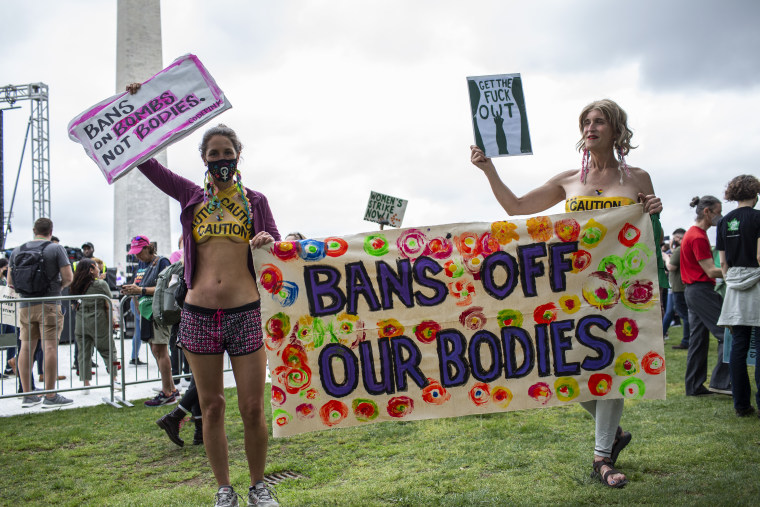
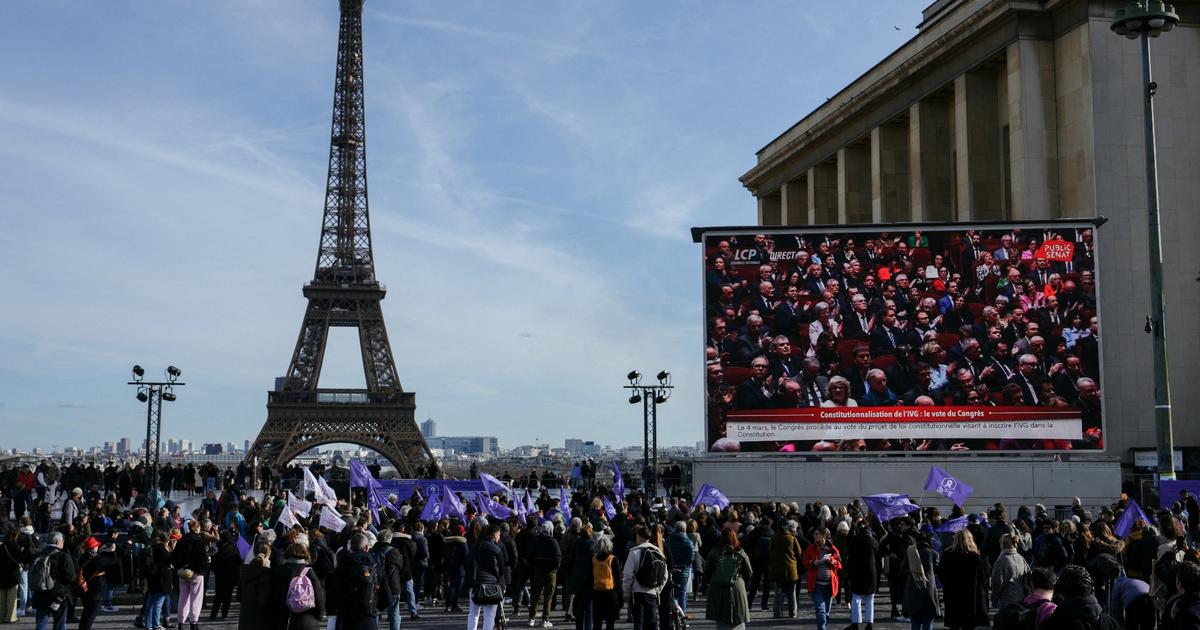


/cloudfront-eu-central-1.images.arcpublishing.com/prisa/3F3EHAP7NYDCD7NIOIZLOQJFPI.jpg)
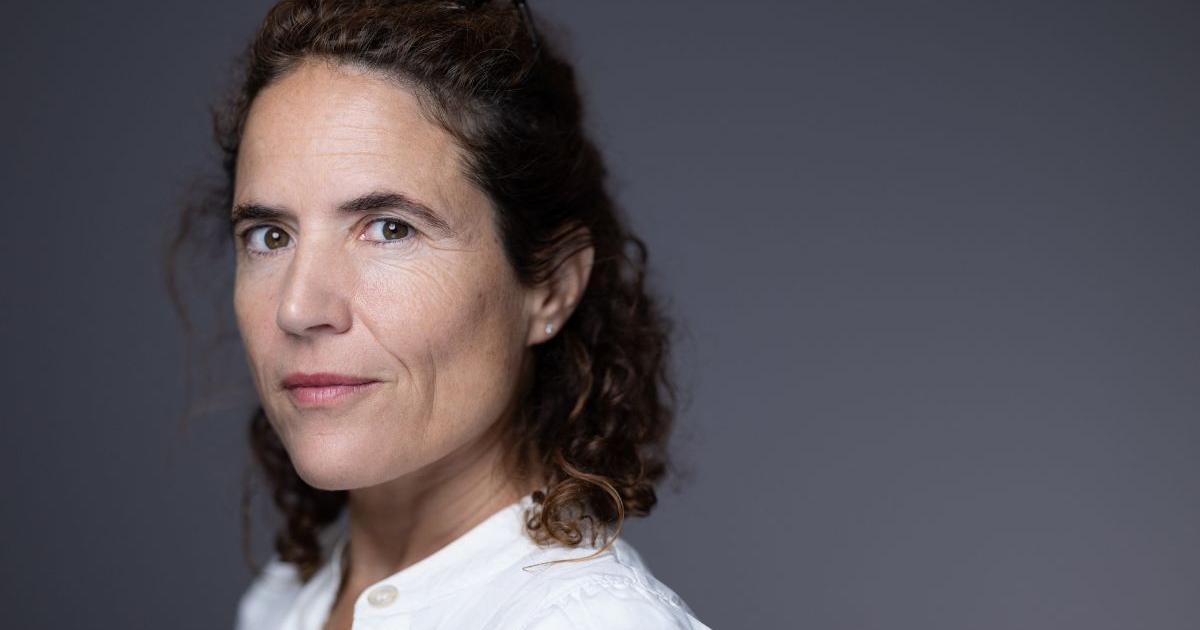

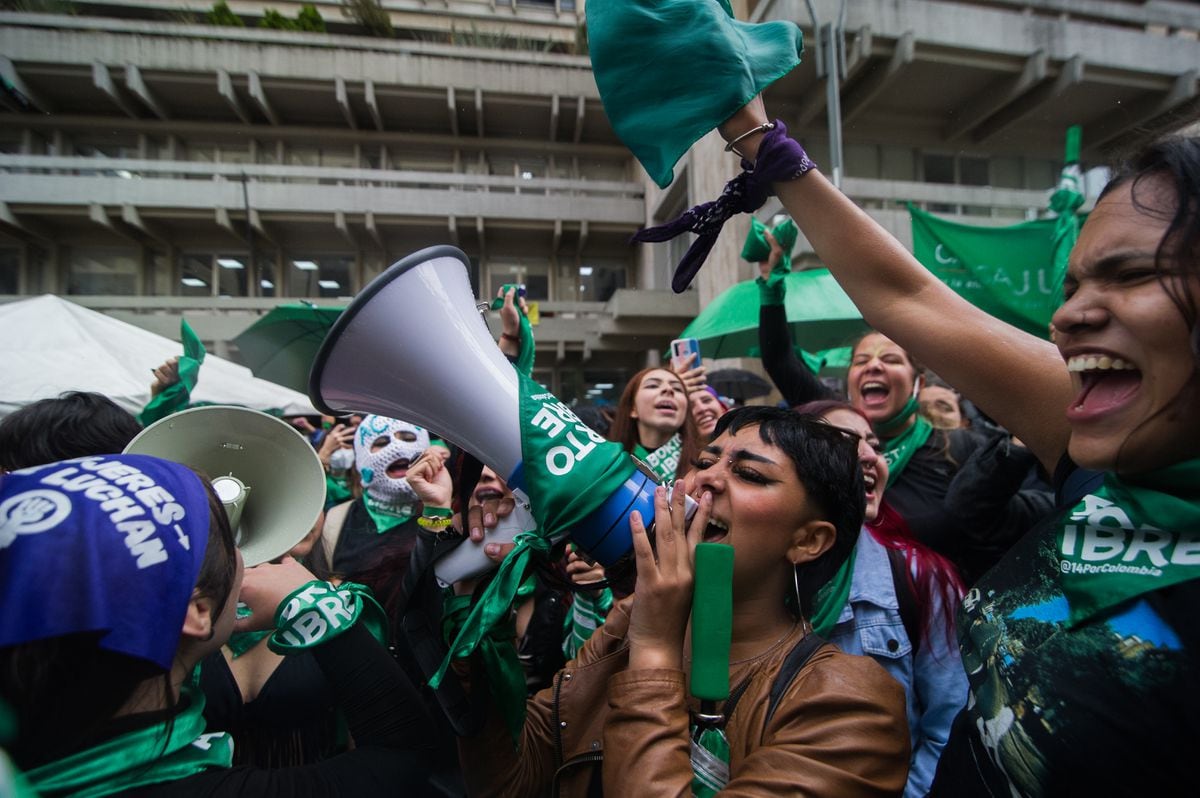
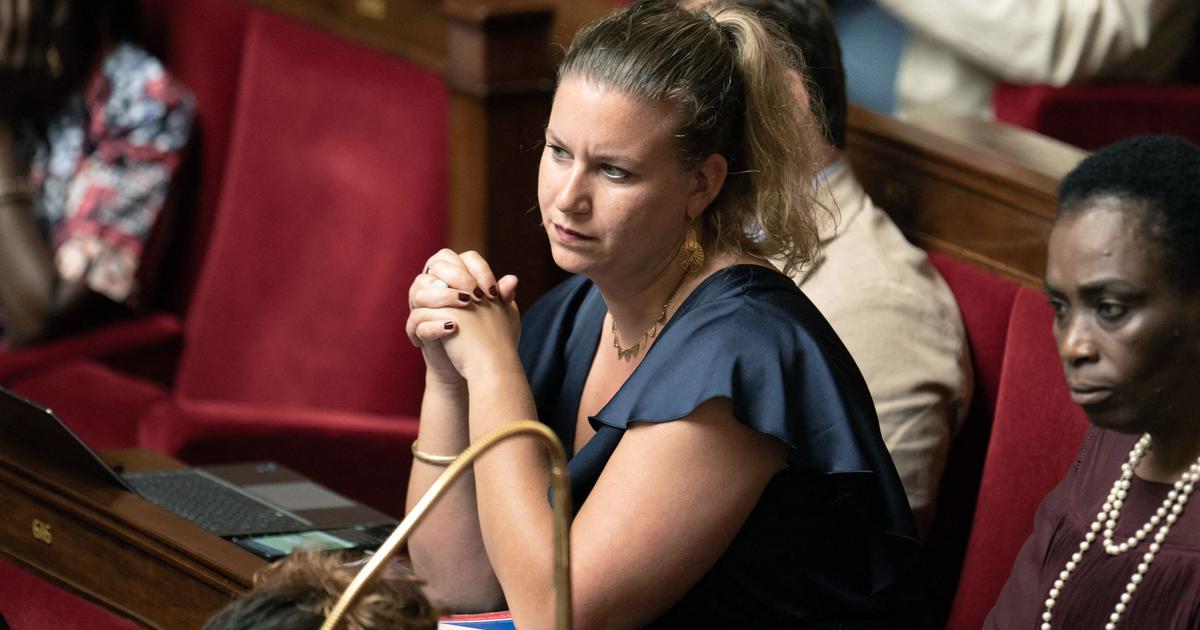


/cloudfront-eu-central-1.images.arcpublishing.com/prisa/KMEYMJKESBAZBE4MRBAM4TGHIQ.jpg)


